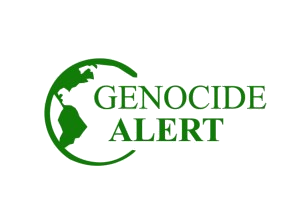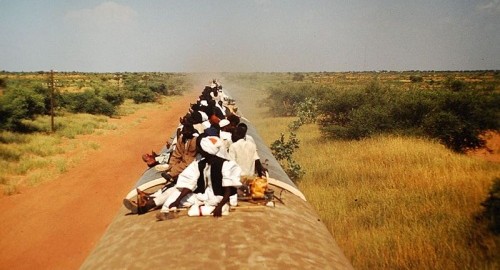Sudan Before the Split: Germany can protect civilians by means of diplomacy – if it acts now
The revolution in Egypt brought down a dictator and spurred hopes for democracy, while Libya’s uprising brought on a civil war in which the West is now intervening to protect civilians. Sudan borders both of these countries, and in some sense it also borders both of these political scenarios. Civilians there face grave dangers that have only grown with the convulsions seizing the region. Fortunately, the January referendum in which South Sudan chose to separate from the north was largely peaceful. But fighting in the border region of Abyei has recently forced thousands to flee, and there could be massive bloodshed when South Sudan formally declares its independence July 9. With urgent diplomatic action, Germany can help to ensure that such violence does not break out – and that the international community will not have to face the prospect of a second intervention in the region.
Germany should immediately:
- Advocate for the strengthening of the U.N. peacekeeping missions UNMIS (South Sudan) and UNAMID (Darfur). UNMIS’ mandate will expire in July. It must be renewed not only for the new state of South Sudan, but also for the critical border regions that will remain with the north. Khartoum must be persuaded to accept a continued peacekeeping presence in these flashpoint areas under its control. Both U.N. missions also urgently need better mobility. The Sudanese Armed Force’s practice of barring peacekeepers from access to crisis spots must no longer be tolerated. The matter of finding 20 critically needed helicopters for UNAMID must move from the realm of discussion, where it has resided for years, to action. Finally, troop-contributing countries should be asked to lift geographic restrictions on the deployment of their soldiers. (For more details, see Genocide Alert’s January Policy Brief here.)
- Develop a detailed Sudan policy that maps out crisis scenarios and coordinates action across the political, economic, development-assistance and military realms. The German Government announced a new “Sudan concept” in October, but this is no more than a four-page document in which diplomacy for the post-referendum phase is treated in only half a page. The plan must be deepened and the unclassified portions publicized.
- Pressure Khartoum and Juba (South Sudan) to settle the many unresolved questions of the independence process. It is particularly important to clear the uncertainty over the future of oil revenues. Germany should observe the negotiations on oil, debts, border determination, citizenship and border control, etc. at the highest levels (see next point). Chancellor Merkel should be prepared to intervene personally in the discussions if necessary, acting in cooperation with the African Union, U.S. and other observers.
- Name a high-ranking special envoy for Sudan. This person would coordinate diplomatic efforts in New York, Khartoum, Brussels and elsewhere around the world; have direct access to Chancellor Merkel or Foreign Minister Westerwelle; and lead the German observation of North-South negotiations.
- Send the right signals on Darfur. Germany should also observe the stalled Darfur peace talks at the highest levels. Germany should publicly commit itself to the international obligation to ensure that the more than 2 million refugees from the region can return home safely to rebuild their lives. And Germany should engage in diplomacy to ensure that Khartoum does not see international incentives for peaceful behavior in South Sudan as license to foment war in Darfur.
- Prove willing to deploy diplomatic and economic pressure. Doing so will first require a build-up of political will within the German policy community. As the January GA Policy Brief explained, Germany has several points of leverage vis-a-vis Khartoum. They include the potential downgrading of diplomatic relations, German objection to international debt relief for Khartoum, and the threat of sanctions against key regime members, similar to those the E.U. recently imposed on Ivory Coast’s Laurent Gbagbo. Serious diplomacy also means that Germany will lead in the E.U. but will not allow its Sudan policy to fall victim to consensus politics. At the U.N. Security Council, Germany’s charge is to be a strong voice for the people of Sudan and not to shy away from disagreements with China and Russia. Finally, the importance of high-level attention should not be underestimated. When Chancellor Merkel and Foreign Minister Westerwelle express their concern about Sudan, they send an important signal to German media, to German diplomats, and not least to the regime in Khartoum.
-
Continue to provide humanitarian aid, development assistance and support for the buildup of institutions in South Sudan. To prevent a failed state and the eruption of conflict among groups in South Sudan, the South Sudanese people must see improvements in their living conditions. Road construction, improved access to water and health care, and employment programs for youth can all be important peace dividends. Moreover, Germany should support the construction of state institutions and police forces. As it has largely done in the past, Germany should ensure that its aid is sensitive to the dynamics of the region’s complex conflicts.
For more information on Sudan, also see the January Genocide Alert Policy Brief on the Referendum in Sudan, as well as our article on the dangers facing the Sudan after the referendum (in German).

